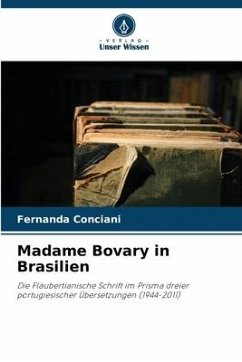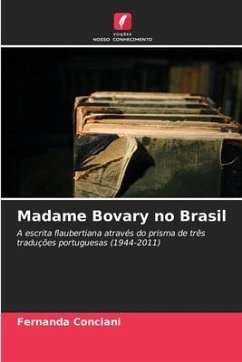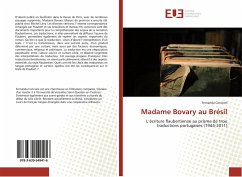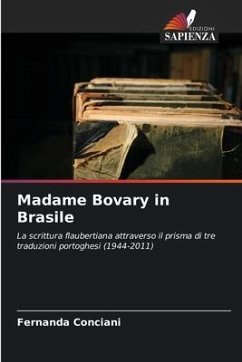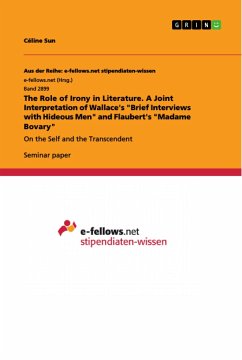
Madame Bovary in Brazil
Flaubertian writing through the prism of three Portuguese translations (1944-2011)
Versandkostenfrei!
Versandfertig in 6-10 Tagen
27,99 €
inkl. MwSt.

PAYBACK Punkte
14 °P sammeln!
First published as a serial in the Revue de Paris, with many passages deleted, Madame Bovary. Provincial manners was then published by Michel Lévy. The various versions, the intense correspondence exchanged by Flaubert and his preserved drafts and manuscripts are important documents for understanding the issues at stake in Flaubertian narrative. The translations, if they make it possible to disseminate Flaubert's work, also make it possible to identify the important aspects of the novel. What is translation, if not first and foremost the interpretation of a text? It is the transmission, in an...
First published as a serial in the Revue de Paris, with many passages deleted, Madame Bovary. Provincial manners was then published by Michel Lévy. The various versions, the intense correspondence exchanged by Flaubert and his preserved drafts and manuscripts are important documents for understanding the issues at stake in Flaubertian narrative. The translations, if they make it possible to disseminate Flaubert's work, also make it possible to identify the important aspects of the novel. What is translation, if not first and foremost the interpretation of a text? It is the transmission, in another society, of a product determined by a culture, but also by economic, commercial, religious and political factors. Translation is a perpetual negotiation between source and target cultures, and depends largely on the translator's interpretations. This book proposes to analyse three Brazilian translations, paying particular attention to essential aspects of Flaubertian style. What were the choices made by the Portuguese translators and, above all, what were the consequences for Flaubert's text?



